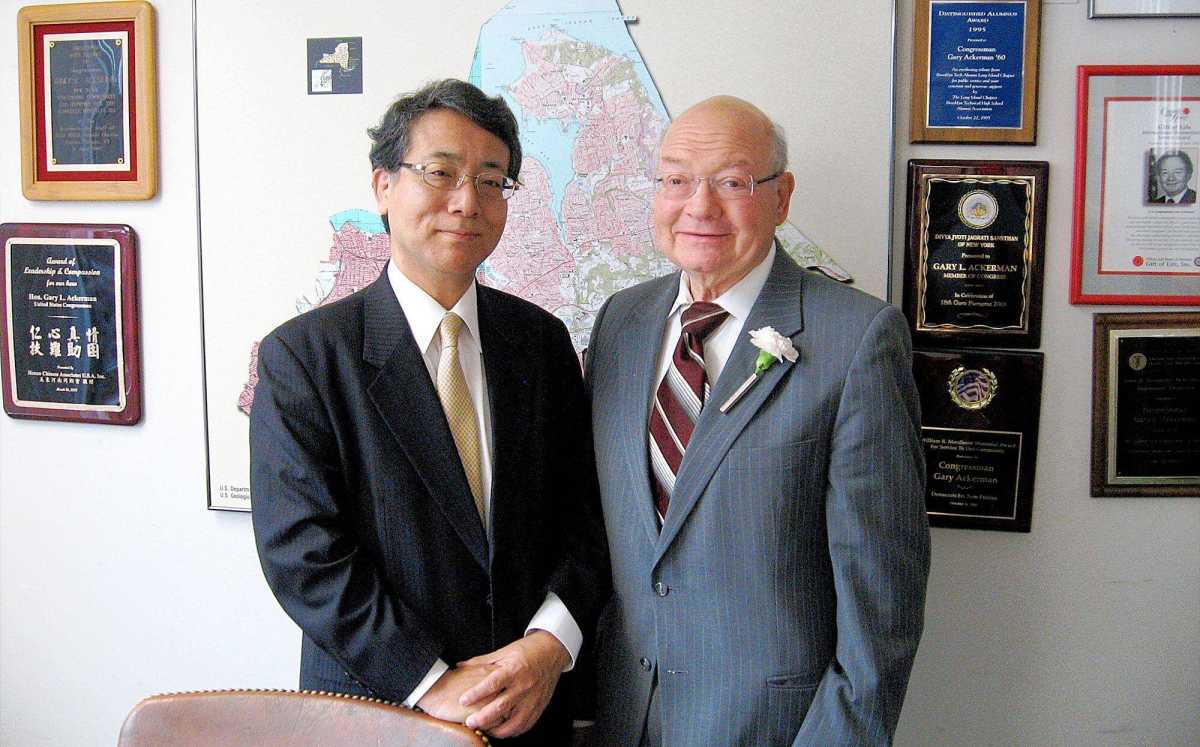By Rebecca Henely
Japanese residents of Queens say their families and friends in their home country fear nuclear pollution and have been suffering from electricity shortages and poor travel conditions ever since the devastating earthquake and tsunami hit earlier this month.
“Every day I call and I check what’s going on,” said 55-year-old Mickey Muroi, a Flushing resident who owns the sushi restaurant Mickey’s Place in Bayside.
The crisis, which has gripped both Japan and the world, began March 11 when a 9.0-magnitude earthquake hit the northeast coast of Japan, causing a tsunami that has crippled the Fukushima Daiichi Nuclear Power Station, raising fears of radiation poisoning, some of which has been found in Tokyo’s water. Some 11,000 people were reported dead and the death tolls is expected to be higher than 18,000, the Associated Press reported Tuesday.
Ambassador Shigeyuki Hiroki, the consul general of Japan in New York, visited Bayside last Thursday to brief U.S. Rep. Gary Ackerman (D-Bayside) on the crisis, including the nuclear threat. There is a small population of Japanese living in the borough.
Kumiko Okasaka, an accounting major at LaGuardia Community College, at 31-10 Thomson Ave. in Long Island City, said her immediate family is safe but her relatives, who lived near the waterfront, were among the missing.
“My mother was able to talk to them almost the night of the earthquake and they said at the time they would survive,” Okasaka said. “At the time they told my mom, the tsunami was just in front of their house. That was the last call from them.”
Ever since the disaster, organizations within the United States have been collecting aid for the country. Muroi said he has been sending money and clothes to donate to Japan. LaGuardia Community College also held a three-day fund-raising campaign in which students, staff and faculty throughout the campus collected donations for the country from March 23 to March 24. The third day of the campaign will be April 7.
“American people are really helping Japan,” said 33-year-old Yasumasa Miyamoto.
The Child Center for New York, at 60-02 Queens Blvd. in Woodside, also has a Japanese-speaking staff and are offering services for those affected by the disaster. The center has one-on-one counseling and community workshops in English and Japanese for this purpose.
The condition of the Fukushima power plant has been a concern for many. Okasaka said her family has not been able to eat or drink water and also have an electricity shortage due to the crippled plant’s inability to meet demand.
“I just hope the situation is resolved as soon as possible and people there can focus on their lives and moving forward,” said Kayano Ishihara, a LaGuardia student studying to become an occupational therapy assistant. Her family in Tokyo has been subject to erratic train schedules since the disaster.
A shortage of gasoline also means Okasaka’s sisters have not been able to travel to check on her 80-year-old mother, who has been living alone in a damaged house.
Miyamoto said he wanted more accountability from the Japanese government.
“They are facing a very difficult situation, but I want them to stop political fights and focus on the recovery,” he said.
Reach reporter Rebecca Henely by e-mail at rhenely@cnglocal.com or by phone at 718-260-4564.


































